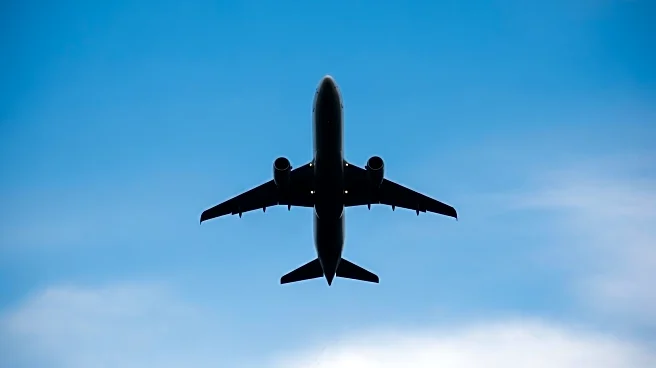What's Happening?
Breeze Airways has achieved a significant milestone by obtaining a U.S. flag carrier certificate from the Federal Aviation Administration (FAA). This certification allows the airline to commence international flights, with plans to launch services to Cancun, Mexico; Montego Bay, Jamaica; and Punta Cana, Dominican Republic in early 2026. Founded by CEO David Neeleman in 2021, Breeze Airways has rapidly expanded its domestic network to over 80 destinations, focusing on routes with minimal competition. The airline will operate its international flights using Airbus A220-300 aircraft, configured to carry 137 passengers. The new routes will include seasonal flights from various U.S. cities, such as Norfolk, Charleston, New Orleans, and Providence, to Cancun, and from Raleigh-Durham to Montego Bay and Punta Cana.
Why It's Important?
The acquisition of U.S. flag carrier status is a pivotal development for Breeze Airways, enabling it to expand its market reach beyond domestic borders. This move is expected to enhance competition in the airline industry, particularly on routes to popular vacation destinations. By targeting underserved markets, Breeze Airways could potentially disrupt existing service patterns and offer more travel options to consumers. The airline's strategic focus on unserved routes may lead to increased passenger traffic and economic benefits for the regions involved. Additionally, the establishment of a new crew base at Raleigh-Durham International Airport signifies potential job creation and economic growth in the area.
What's Next?
Breeze Airways plans to continue expanding its international service offerings, with potential long-haul routes in the future. The airline is considering destinations in South America and Central America, leveraging the range capabilities of its Airbus A220-300 aircraft. However, further expansion over the ocean, such as routes to Hawaii, will require ETOPS certification. As Breeze Airways begins its international operations, it may face competitive responses from other airlines, particularly those already serving the planned destinations. The airline's success in these new markets will depend on its ability to maintain competitive pricing and service quality.
Beyond the Headlines
The entry of Breeze Airways into international markets could have broader implications for the airline industry, including potential shifts in market dynamics and pricing strategies. The airline's focus on underserved routes may encourage other carriers to explore similar opportunities, leading to increased competition and innovation in route planning. Additionally, Breeze Airways' expansion may influence regulatory policies related to international air travel, as the FAA and other authorities monitor the impact of new entrants on market stability and consumer choice.











